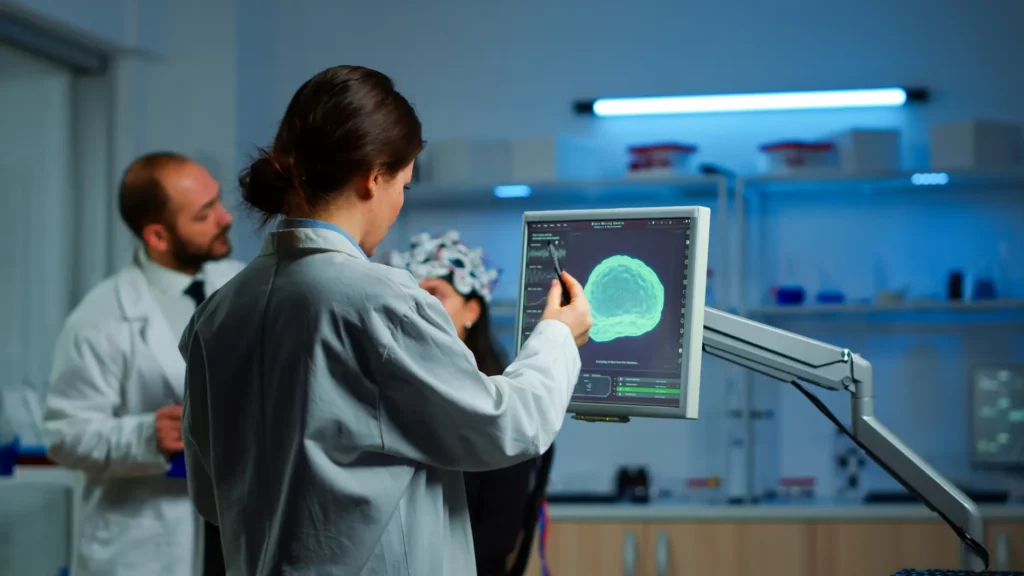Disclaimer: This content is for educational purposes only. The statements here have not been evaluated by the U.S. Food & Drug Administration and are not intended to diagnose, treat, cure, or prevent any disease. Individual responses vary. Always consult a qualified, licensed healthcare provider before making changes to your health routine.
What Is the Gut-Brain Axis?
The gut-brain axis refers to the two-way communication network between your digestive system and your central nervous system. Emerging research suggests this connection—mediated by the vagus nerve, hormones, and your gut microbiome—may influence mood, cognition, and stress regulation.
How Communication Works
-
Neurotransmitter Production: Your gut microbiota contribute to the synthesis of key signaling molecules (e.g., serotonin, GABA), which may support balanced mood when produced in appropriate amounts.
-
Immune & Inflammatory Signals: Gut imbalances can be associated with low-grade inflammation, which some studies link to anxiety or depressive symptoms.
-
Nerve Pathways: The vagus nerve acts as a direct conduit, relaying chemical and electrical messages between the gut and brain.
Signs Your Gut Health May Influence Your Mental Wellness
While individual experiences differ, consider these possible indicators of a gut-brain connection at work:
-
Mood Fluctuations
Preliminary evidence suggests that shifts in gut-microbe balance can be associated with anxiety or low mood in some people. -
Brain Fog & Concentration Issues
Early research indicates that gut inflammation (sometimes called “leaky gut”) may correlate with temporary cognitive sluggishness. -
Stress Response & Energy Levels
A disrupted gut ecosystem can sometimes be linked to irregular cortisol patterns, potentially affecting daily energy and stress resilience. -
Sleep Disturbances
Because serotonin produced in the gut contributes to melatonin synthesis, gut imbalances may play a role in sleep-quality changes.
High-Level Strategies to Support Gut-Brain Health
Rather than one-size-fits-all solutions, combine foundational lifestyle habits with any targeted therapies under professional guidance:
1. Nutrient-Rich, Microbiome-Friendly Diet
-
Probiotic Foods: Yogurt, kefir, sauerkraut, and kimchi may help introduce beneficial bacteria.
-
Prebiotic Foods: Garlic, onions, asparagus, and bananas feed existing microbes.
-
Fiber & Polyphenols: Fruits, vegetables, and whole grains support diverse gut populations.
2. Mind-Body Stress Management
-
Relaxation Techniques: Mindful breathing, meditation, or gentle yoga can help modulate the gut-brain axis via the vagus nerve.
-
Adequate Sleep: Aim for 7–9 hours nightly to support both gut repair and neurotransmitter balance.
3. Thoughtful Supplement Use
-
Probiotic Supplements: Some strains may aid digestion and mood—but responses can vary.
-
Omega-3 Fatty Acids: Under investigation for their anti-inflammatory benefits, which may support both gut and brain health.
-
L-Glutamine: An amino acid under study for its role in maintaining gut-lining integrity.
Note: Always discuss supplements with a licensed provider, as individual health status, medications, and goals differ.
Safety & Important Considerations
-
Mild Side Effects: Probiotics or new supplements may cause temporary gas or bloating.
-
Allergy & Interaction Risk: Always review product labels and medical history to avoid adverse reactions.
-
Evidence Limitations: Many gut-brain findings are based on preliminary or animal studies. Human outcomes can vary widely.
-
Not a Replacement for Care: These strategies are adjunctive and should not replace evidence-based treatments for mood or digestive disorders.
Working with a Qualified Provider
-
Verify Credentials: Seek board-certified functional-medicine practitioners, gastroenterologists, or mental-health professionals with gut-brain expertise.
-
Personalized Assessment: A thorough review of your history, lab results, lifestyle, and symptoms guides any intervention.
-
Ongoing Monitoring: Regular follow-ups help adjust dietary plans, supplements, or mind-body practices to your evolving needs.
Frequently Asked Questions
Q: What is the best way to test my gut-brain health?
A: There’s no single test. Providers may use stool analyses, symptom questionnaires, and lab panels to assess gut function alongside mental-health evaluations.
Q: How long before I notice changes?
A: Some individuals report subtle improvements in weeks; for others, it may take months of consistent dietary and lifestyle support.
Q: Can I self-treat severe anxiety or depression with gut-focused approaches?
A: No. Always seek professional mental-health care for moderate-to-severe symptoms; gut-brain strategies are complementary to, not replacements for, medical or therapeutic treatment.
Key Takeaway: The gut-brain axis highlights a fascinating, emerging area of wellness. By combining a nutrient-dense diet, stress-management techniques, and judicious supplement use—with care overseen by qualified professionals—you can explore ways to support both digestive and mental well-being.


